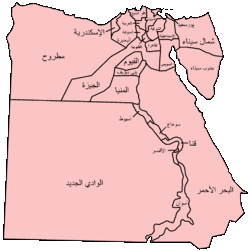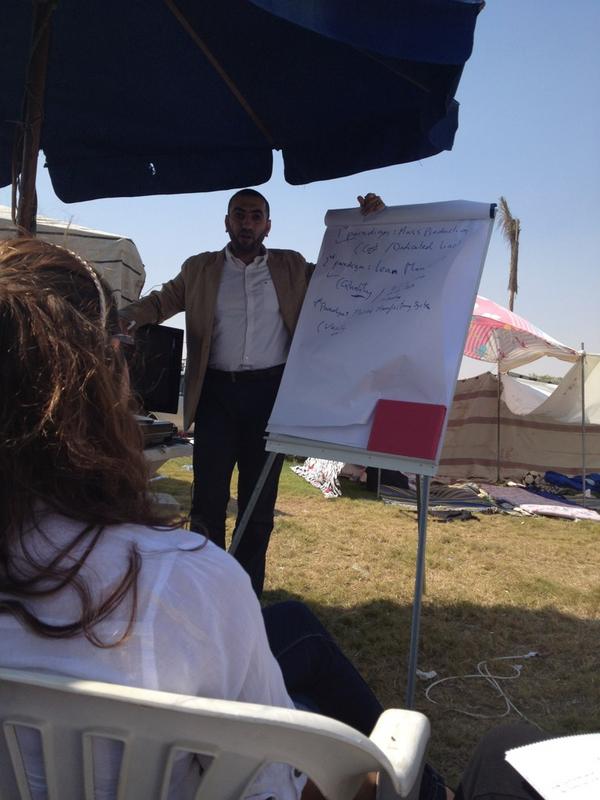
(Khaled Desouki/AFP/Getty Images)
Seventy-five percent of doctors participated in Wednesday’s partial strike, announced the Doctors Syndicate, “despite mounting threats”.
The syndicate’s numbers indicated that participation was at 80%or over across 11 governorates, with 75% of doctors striking in Cairo.
“The situation is unacceptable,” said the syndicate in a statement, adding that the syndicate members would meet to “discuss ways of escalations” to pressure the government into providing some concessions relating to conditions of health facilities and wages for workers in the health sector.
Earlier this week, doctors came to an agreement with the Ministry of Interior concerning security issues affecting the health sector.
The agreement, made between Minister of Interior Mohamed Ibrahim and representatives of the Doctors Syndicate, stipulates a framework for reporting incidents of crime against a hospital.
The interior ministry also agreed to reinforce hospital security through police involvement with the hospitals’ own administrative security. The two sides in Saturday’s meeting agreed that there would be “permanent communication” between the syndicate and ministry officials.
Doctors’ striking on 1 January also called for healthcare reforms. At the time Rapporteur of the Media Committee of the Doctors’ Syndicate Hossam Kamal said that the participation rate was 80%.
Doctors have been trying to push for the ratification of the draft Staff Law, which would organise financial, technical and administrative matters like training, promotions and working hours for all professionals in the public healthcare sector. Emtiaz Hassouna, syndicate’s rapporteur of the external affairs committee, described the draft Staff Law as a “comprehensive work contract”.
Kamal said that during negotiations, “there was no response to [calls for] implementing the Staff Law over a schedule, even though the administrative aspect of the law would incur no costs at all on the state.”
A bulk of doctors’ incomes is made up of bonuses and incentives; however, doctors demand that pay raises increase their fixed salary, which is what the draft Staff Law would achieve if passed. “An entry level doctor has a fixed salary of EGP 200 which reaches EGP 900 with bonuses and incentives,” Hassouna said.
However, bonuses and incentives are only paid if money is available at the time. If there is no money available, they may wait for months before receiving the remainder of their pay.
In addition to the passing the Staff Law, doctors are also demanding an improvement in security conditions in hospitals, by demanding that a law be passed to enforce harsher penalties on anyone who commits an act of aggression against doctors or hospitals, and that the state budget for health be raised. In 2012, doctors staged a partial strike that lasted longer than 80 days, raising the same demands. They ended the strike with the understanding that the draft Staff Law would be passed.
The strike includes all hospitals and medical institutions that operate within the public healthcare sector, all non-emergency medical services and outpatient clinics. However, the emergency department, emergency operations, kidney dialysis, intensive care units and incubators continue to run normally.
Additional reporting by Hend Kortam


